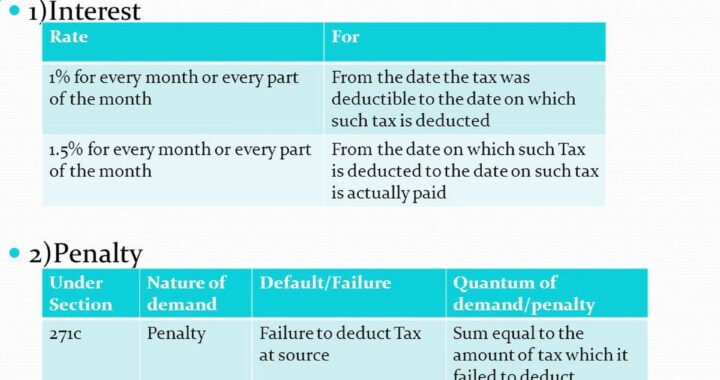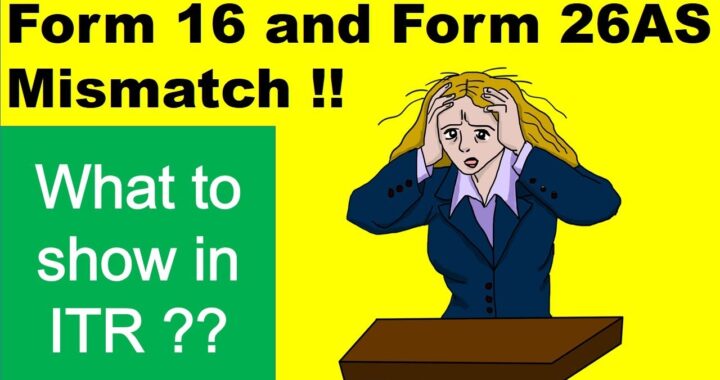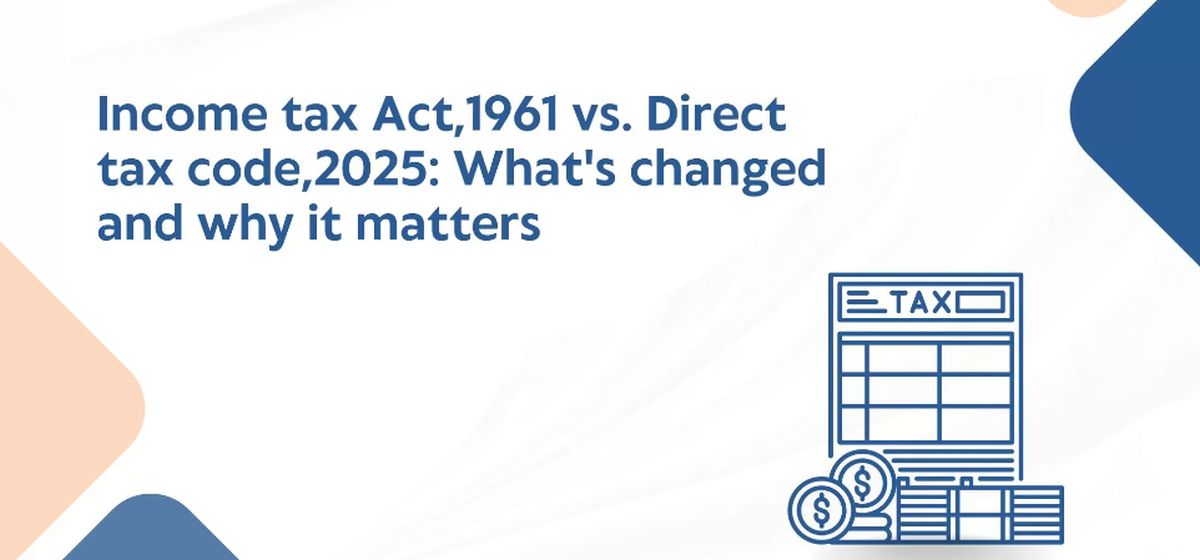Mere cash deposit of more than Rs 10 lakhs in bank doesn’t indicate income has escaped Taxation: ITAT
 The assessee had deposited cash in excess of Rs 10 lakhs in his saving bank account but he had not filed return of income. The AO reopened the assessment of assessee, as he had reason to believe that there was an escapement of income of Rs 10 lakhs. The Tribunal held that the AO proceeded on the fallacious assumption that bank deposits constituted undisclosed income and overlooked fact that the source of deposit need not necessarily be income of the assessee
The assessee had deposited cash in excess of Rs 10 lakhs in his saving bank account but he had not filed return of income. The AO reopened the assessment of assessee, as he had reason to believe that there was an escapement of income of Rs 10 lakhs. The Tribunal held that the AO proceeded on the fallacious assumption that bank deposits constituted undisclosed income and overlooked fact that the source of deposit need not necessarily be income of the assessee
Facts:
(a) The assessee had deposited Rs 10 lakhs (approx) in his saving bank account but no return of income was filed by him. The AO reopened the assessment of assessee, as he had reason to believe that there was an escapement of income of Rs 10 lakhs on part of assessee.
(b) The instant appeal was filed against validity of reassessment proceedings.
The Tribunal held in favour of assessee as under:
(1) At the stage of recording the reasons for reopening the assessment, the formation of prima facie belief that an income has escaped the assessment is necessary. However, it is also necessary that there must be something which indicates, even if not establishes, the escapement of income from assessment.
(2) Merely because some further investigation had not been carried out, which, could have led to detection to an income escaping assessment could not be a reason enough to hold the view that income had escaped assessment.
(3) In the instant case, merely the fact that deposits have been made in a bank account do not indicate that these deposits constitute an income which had escaped assessment.
(4) AO proceeded on the fallacious assumption that bank deposits constituted undisclosed income and overlooked the fact that the sources of deposit need not necessarily be income of the assessee. The reassessment proceedings could not be resorted to unless there was reason to believe, rather than suspect, that income had escaped assessment. Thus, reassessment proceeding was to be set aside.
IN THE ITAT DELHI BENCH ‘A’
Bir Bahadur Singh Sijwali
v.
Income-tax Officer, Ward -1, Haldwani
PRAMOD KUMAR, ACCOUNTANT MEMBER
AND C.M. GARG, JUDICIAL MEMBER
IT APPEAL NO. 3814 (DELHI) OF 2011
[ASSESSMENT YEAR 2008-09]
JANUARY 20, 2015
Ashwni Taneja for the Appellant. Y. Kakkar for the Respondent.
ORDER
Pramod Kumar, Accountant Member – This appeal, filed by the assessee, call into question correctness of the order dated 26th May 2011 passed by the learned CIT(A) in the matter of assessment under section 143(3) r.w.s. 147 of the Income Tax Act, 1961, for the assessment year 2008-09.
2. It is a case of reopened assessment, and one of the grievances raised in this appeal, as set out ground of appeal no. 1 as also ground of appeal no. 2, is against the validity of reassessment proceedings. We will take up this issue first.
3. This assessment was reopened, as noted in the reasons recorded for reopening the assessment- furnished to the assessee vide Assessing Officer’s letter dated 25th April 2012, on the following ground:
During the financial year 2007-08, the assessee has made transaction of Rs 10,24,100 (deposits in cash) in his saving bank account but no return of income was filed by the assessee. As such, it was reason to believe that there is an escapement of income at Rs 10,24,100 on the part of the assessee. Therefore, in the light of the above fact that the income chargeable to tax for the assessment year 2008-09 has escaped assessment within meanings of section 147 of the Income Tax Act, notice was issued under section 148 on 14.9.2009 which was served upon the assessee through his counsel Sri Arun Kumar Agarwal, Advocate, on 14/09/2009.
4. The short question that we are required to adjudicate is whether or not, on the basis of the above reasons, reassessment proceedings can be lawfully initiated. This aspect of the matter was not examined by the CIT(A), but, as is the settled legal position in the light of Hon’ble Supreme Court’s judgment in the case of National Thermal Power Co. Ltd Vs CIT [(1198) 223 ITR 383], the assessee is not precluded from raising this legal issue at this stage, on the ground that the same has not been raised before the authorities below. Learned Departmental Representative, in all fairness, did not raise this technicality either. We, therefore, proceed to examine this issue on merits.
5. We have heard the rival contentions, perused the material on record and duly considered facts of the case in the light of the applicable legal position.
6. A plain look at the reasons for reopening the assessment, as produced before us, show that these reasons were recorded after the notice was served on 14th September 2009 as a mention about the fact of service of notice is set out in the recorded reasons itself. It is only elementary that the reasons are to be recorded before issuance of notice, and in the absence of any reasons for reopening having been recorded prior to reopening of assessment, the reassessment proceedings fail for this short reason alone. Hon’ble Bombay High Court, in the case of Prashant S. Joshi v. ITO [(2010) 230 CTR (Bom) 232.] has observed: “The AO must have reasons to believe that such is the case (i.e. any income chargeable to tax has escaped assessment for a particular year) before he proceeds to issue notice under s. 147″. In other words, when no reasons are recorded for reopening the assessment prior to issuance of notice, the reassessment proceedings must fail for that reason alone. However, for the reasons we will set out now, the conclusions will be no different even if it is presumed that this communication, extracts from which are reproduced before, only conveys the reasons already recorded prior to issuance of notice.
7. It is well settled in law that reasons, as recorded for reopening the reassessment, are to be examined on a standalone basis. Nothing can be added to the reasons so recorded, nor anything can be deleted from the reasons so recorded. Hon’ble Bombay High Court, in the case of Hindustan Lever Ltd. v. R.B. Wadkar [(2004) 268 ITR 332], has, inter alia, observed that “……….It is needless to mention that the reasons are required to be read as they were recorded by the AO. No substitution or deletion is permissible. No additions can be made to those reasons. No inference can be allowed to be drawn on the basis of reasons not recorded. It is for the AO to disclose and open his mind through the reasons recorded by him. He has to speak through the reasons.” Their Lordships added that “The reasons recorded should be self-explanatory and should not keep the assessee guessing for reasons. Reasons provide link between conclusion and the evidence….”. Therefore, the reasons are to be examined only on the basis of the reasons as recorded. The next important point is that even though reasons, as recorded, may not necessarily prove escapement of income at the stage of recording the reasons, such reasons must point out to an income escaping assessment and not merely need of an inquiry which may result in detection of an income escaping assessment. Undoubtedly, at the stage of recording the reasons for reopening the assessment, all that is necessary is the formation of prima facie belief that an income has escaped the assessment and it is not necessary that the fact of income having escaped assessment is proved to the hilt. What is, however, necessary is that there must be something which indicates, even if not establishes, the escapement of income from assessment. It is only on this basis that the Assessing Officer can form the belief that an income has escaped assessment. Merely because some further investigations have not been carried out, which, if made, could have led to detection to an income escaping assessment, cannot be reason enough to hold the view that income has escaped assessment. It is also important to bear in mind the subtle but important distinction between factors which indicate an income escaping the assessments and the factors which indicate a legitimate suspicion about income escaping the assessment. The former category consists of the facts which, if established to be correct, will have a cause and effect relationship with the income escaping the assessment. The latter category consists of the facts, which, if established to be correct, could legitimately lead to further inquiries which may lead to detection of an income which has escaped assessment. There has to be some kind of a cause and effect relationship between reasons recorded and the income escaping assessment. While dealing with this aspect of the matter, it is useful to bear in mind the following observations made by Hon’ble Supreme Court in the case of ITOv. Lakhmani Mewal Das [(1976) 103 ITR 437],
” the reasons for the formation of the belief must have rational connection with or relevant bearing on the formation of the belief. Rational connection postulates that there must be a direct nexus or live link between the material coming to the notice of the ITO and the formation of this belief that there has been escapement of the income of the assessee from assessment in the particular year because of his failure to disclose fully and truly all material facts. It is no doubt true that the Court cannot go into sufficiency or adequacy of the material and substitute its own opinion for that of the ITO on the point as to whether action should be initiated for reopening assessment. At the same time we have to bear in mind that it is not any and every material, howsoever vague and indefinite or distant, remote and farfetched, which would warrant the formation of the belief relating to escapement of the income of the assessee from assessment.
8. Let us, in the light of this legal position, revert to the facts of the case before us. All that the reasons recorded for reopening indicate is that cash deposits aggregating to Rs 10,24,100 have been made in the bank account of the assessee, but the mere fact that these deposits have been made in a bank account does not indicate that these deposits constitute an income which has escaped assessment. The reasons recorded for reopening the assessment donot make out a case that the assessee was engaged in some business and the income from such a business has not been returned by the assessee. As we donot have the liberty to examine these reasons on the basis of any other material or fact, other than the facts set out in the reasons so recorded, it is not open to us to deal with the question as to whether the assessee could be said to be engaged in any business; all that is to be examined is whether the fact of the deposits, per se, in the bank account of the assessee could be basis of holding the view that the income has escaped assessment. The answer, in our humble understanding, is in negative. The Assessing Officer has opined that an income of Rs 10,24,100 has escaped assessment of income because the assessee has Rs 10,24,100 in his bank account but then such an opinion proceeds on the fallacious assumption that the bank deposits constitute undisclosed income, and overlooks the fact that the sources of deposit need not necessarily be income of the assessee. Of course, it may be desirable, from the point of view of revenue authorities, to examine the matter in detail, but then reassessment proceedings cannot be resorted to only to examine the facts of a case, no matter how desirable that be, unless there is a reason to believe, rather than suspect, that an income has escaped assessment.
9. Learned Departmental Representative has referred to a number of judicial precedents in support of her stand that even deposits in the bank account, as having come to the notice of the Assessing Officer through AIR, can be reason enough for holding the belief that income has escaped assessment. She has relied upon the decisions in the cases of CIT v. Nova Promoters & Finlease Pvt Ltd [(2012)342 ITR 169] but then none of the questions before Honble High Court had anything to do with reopening of assessment and this decision can not, therefore, be taken as an authority on the legal issue which did not even come up for specific adjudication before Their Lordships. As for her reliance on Honble Supreme Courts judgment in the case of Phool Chand Bajrang Lal v. ITO [(1993) 203 ITR 456], that was case in which Their Lordships concluded that the AO “rightly initiated the reassessment proceedings on the basis of subsequent information, which was specific relevant and reliable, and after recording the reasons for formation of his own belief that in the original assessment proceedings, the assessee had not disclosed the material facts truly and fully and, therefore, income chargeable to tax had escaped assessment” and we are unable to see anything on the facts of the present case which are materially similar to the facts of the said case. As regards her reliance on the decision of a coordinate bench in the case of Mithila Credit Services Limited v. ITO (ITA No. 1078/Del/2013; order dated 23.5.2014), it is important to bear in mind the fact that it was a case in which the Assessing Officer had reopened the assessment on the basis of receipt of information from Directorate of Investigation, and, as noted by the Assessing Officer in the reasons recorded for reopening the assessment, “the name of the assessee figures as one of the beneficiaries of these alleged bogus transactions” in the information given by the directorate. If the assessee was a beneficiary of such a scam, the income was indeed to have been taxed in its hands but then in the case before us the only reason for reassessment proceedings was the fact of deposit of bank account which by itself does not lead to income being taxed in the hands of the assessee. Learned Departmental Representative has referred to several other judicial precedents in support of the proposition that at the stage of initiation of reassessment proceedings, all that is to be seen as existence, rather than adequacy, of the material to come to the conclusion that income has escaped assessment. To us, there cannot be any, and there is no, doubt on the correctness of this proposition but then, as we have elaborately explained earlier in this order, the material must indicate income escaping assessment rather than desirability of further probe in the matter which may or may not lead to income escaping the assessment. On the basis of reasons as recorded in this case, such an inference about income escaping assessment, in our humble understanding, cannot be drawn.
10. In view of the reasons set out above, as also bearing in mind entirety of the case, we are of the considered view that the reasons recorded by the Assessing Officer, as set out earlier, were not sufficient reasons for reopening the assessment proceedings. We, therefore, quash the reassessment proceedings. As the reassessment itself is quashed, all other issues on merits of the additions, in the impugned assessment proceedings, are rendered academic and infructuous.
11. In the result, the appeal is allowed in the terms indicated above.
Judgment Courtesy – Pawan Singla- Chartered Accountant

 Can an assessee pay House Rent to his parents and claim relief? Would there be any legal complications?
Can an assessee pay House Rent to his parents and claim relief? Would there be any legal complications?  Boost Your Business & Reduce Taxes: A Guide to Maximizing Benefits Under Section 80JJAA
Boost Your Business & Reduce Taxes: A Guide to Maximizing Benefits Under Section 80JJAA  What is remedy to taxpayer if the Tax deductor fails to deposit the TDS or fails to file TDS Return
What is remedy to taxpayer if the Tax deductor fails to deposit the TDS or fails to file TDS Return  What is Income Tax Liability on Income from trading in Future and Options
What is Income Tax Liability on Income from trading in Future and Options  The Importance of Filing Your Income Tax Return on Time: A Financial Must-Do
The Importance of Filing Your Income Tax Return on Time: A Financial Must-Do  Is Addition made by Assessing officer on basis of mismatch between AIR and F26AS Justified
Is Addition made by Assessing officer on basis of mismatch between AIR and F26AS Justified  Major Changes Expected in Direct Tax Code 2025 and why these matter
Major Changes Expected in Direct Tax Code 2025 and why these matter